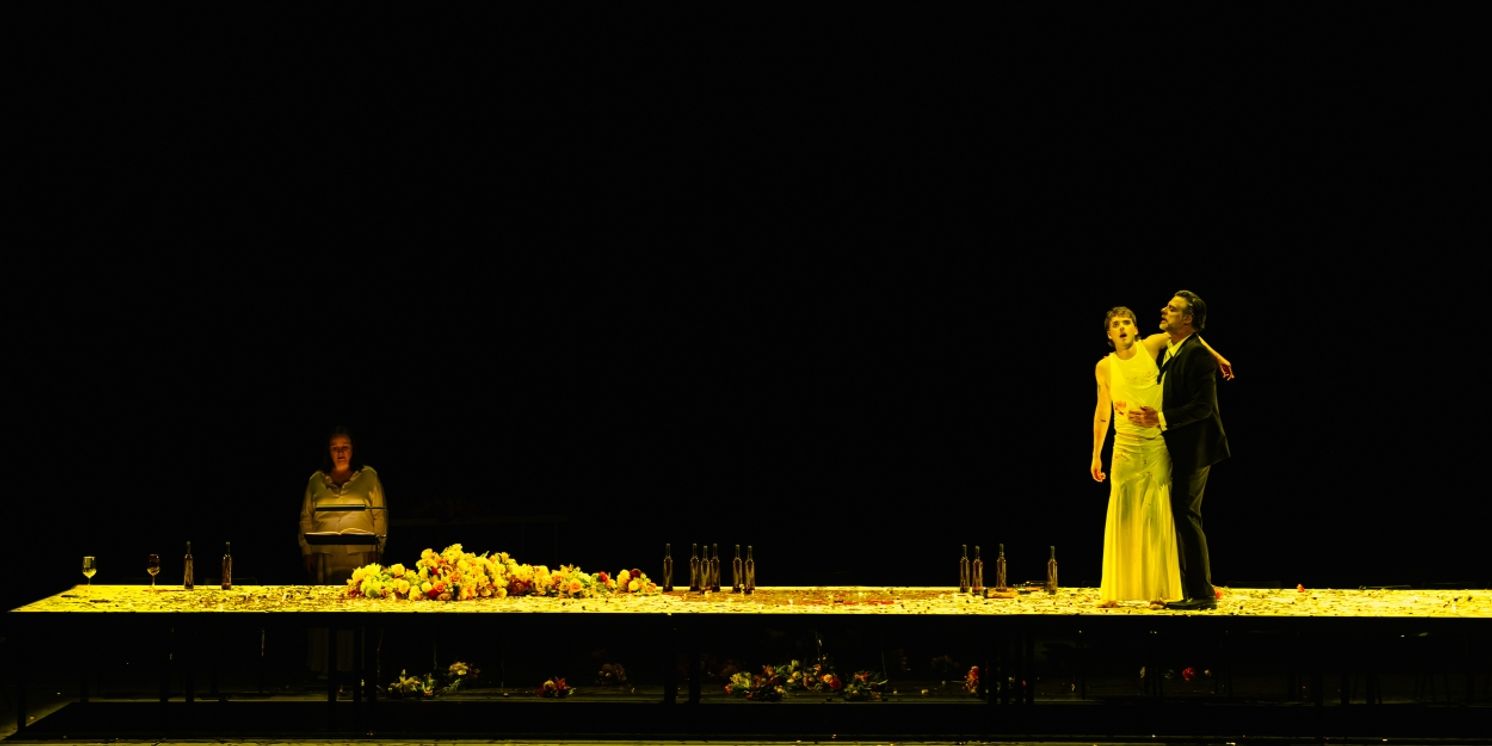Review: DUKE BLUEBEARD'S CASTLE, London Coliseum
Bartok's only venture into opera is stranger and stranger on every viewing

 When The Eagles wrote “Hotel California”, their indictment of alienation amidst the wealth of the USA’s biggest state, expressed through the metaphor of a building full of mysteries from which you can “check out, but never leave”, they might have had Béla Bartók’s Duke Bluebeard’s Castle on their minds. Okay, that’s unlikely, but the parallels are marked and provide a useful way into a strange, at times difficult, but wholly compelling opera.
When The Eagles wrote “Hotel California”, their indictment of alienation amidst the wealth of the USA’s biggest state, expressed through the metaphor of a building full of mysteries from which you can “check out, but never leave”, they might have had Béla Bartók’s Duke Bluebeard’s Castle on their minds. Okay, that’s unlikely, but the parallels are marked and provide a useful way into a strange, at times difficult, but wholly compelling opera.
Librettist, Béla Balázs, tells us in a prologue (Leo Bill in a non-singing role) that what happens only happens in our minds. That Hitchcockian psycho-thriller vibe never leaves sensibility as the action unfolds between just two characters, a young woman, in love, and an older man, who broods with a menace clinging to his words. Premiering in 1918, it fits with the Expressionist movement that was sweeping European Art only to be displaced by the ravages of the flu epidemic and the rise of Cubism.
Judith and the Duke explore the dank, dark castle which fascinates and disturbs both of them, the woman because it is unknown, the Duke because he does know, and fears her reaction to what she will see. As she goes from one door to the next (in this semi-staged version, we imagine such portals and such scenes), the Duke’s power and wealth is revealed, but blood is a constant theme - it stains weapons, it drips from flowers. Every room is devoid of people, the Duke’s loneliness more evident with each revelation. Her dread rises until the seventh and final door is before her, the Duke pleading with her not to open it - but she knows her destiny and does so. The Duke's last, and most terrible secret, is revealed.
.jpg?format=auto&width=1400)
John Relyea’s bass voice and hulking presence lends a menace as dark as The Duke’s castle itself - you can see his pain and his love for the woman he wants to make his bride, but there’s a soul withering and curdling inside him, a heart too damaged to recover.
Jennifer Johnston was a very late substitute for an indisposed Alison Cook and, understandably, she seemed a little reluctant to let her mezzo-soprano really go at times. The part was walked (bravely I think) by assistant director, Crispin Lord, obviously changing the dynamic between the couple. I suspect as originally enviaged, Judith had more agency before the domineering Duke.
That said, the real storytelling is done by the orchestra. I cannot recall the English National Opera Orchestra in finer fettle, driven by Lidiya Yankovskaya's confident baton. She finds the light and shade (well, shade and darker shade) in Bartok's mesmeric melodies, the continually shifting music knocking us continually off-balance as much as the contents of the room do to Judith. The music is never comfortable, but, like the Duke, it retains its power to seduce, lulling you into a security that instantly explodes to remind you of the danger.
Director, Joe Hill-Gibbins, closes the show with a mini coup de théâtre that jolts Judith (and us) back down to earth. By then, of course, it's too late.
Duke Bluebeard's Castle at the London Coliseum until 23 March
Photo Credits: Nirah Sanghani
Reader Reviews
Videos

